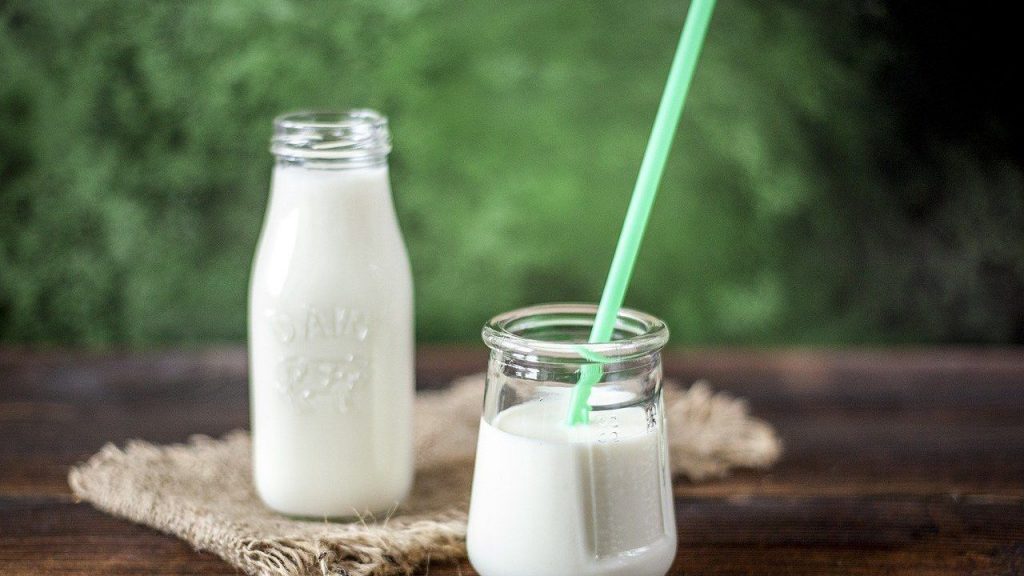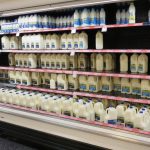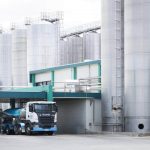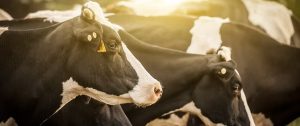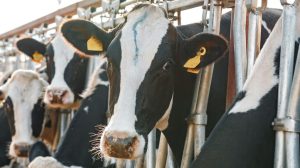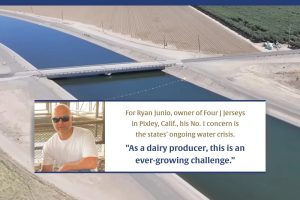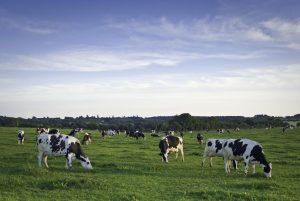
Organic milk production is expected to grow, providing economic values with higher prices, environmental benefits as well as better animal welfare.
EU organic milk – representing 3.5% of EU milk in 2019 – could reach 8% in 2031.
Sustainable milk production solutions
The report also states that EU milk production will provide sustainable solutions to dairy farmers, climate and society.
In this regard, farmers can benefit from applying sustainable feeding strategies and better herd management, leading to efficiently managed costs and operations.
Furthermore, having to comply with higher environmental standards, cows’ replacement rates could decline while pasture-based production systems will grow, providing benefits also for biodiversity and soil health.
Global dairy trade
Despite the projected reduced growth, the EU is expected to remain the largest dairy trade supplier in 2031, representing 30% of global dairy trade.
Growth of the EU’s two biggest competitors will also be moderate, with New Zealand at 0.2% per year and the US at 1%. Developing countries will grow the most during that period.
During the coming decade, value creation will remain a growth factor.
Dairy products, especially cheese, could particularly benefit from this, given an already active participation in existing quality schemes.
In addition, cheese is expected to benefit most from the additional EU milk produced by 2031, plus 0.7% per year, while generating the highest value.
EU fresh dairy products could benefit from growing exports, which are expected to reach 1.8 million tonnes in 2031.
EU consumption will continue its decline at a slower rate, at -0.2% compared to -0.5% in 2021, thanks to an increased interest in differentiated products (e.g. organic). As a result, EU production could remain stable, with a relatively high average of 2019-2021 at 38.5 million tonnes.
Meat
Sustainability is expected to play an increasingly prominent role in EU meat markets, both for producers and consumers, according to the report.
Modernisation, innovative technologies and changes in farming practices will lead to more efficient and more environmentally-friendly meat production.
Overall, EU meat per capita consumption is expected to drop from 69.8kg in 2018 to 67kg by 2031.
Still, the investments required to do so remain a challenge.
Furthermore, concerns over the environment and climate change will result in consumers paying further attention to the production process and products’ origin.
With a total cow herd set to decrease by 7% (down 2.1 million heads), EU gross beef production is expected to fall by 0.6 million tonnes (-8%) over the outlook period. In terms of EU consumption, it will continue its downward trend between 2021 and 2031 and drop from 10.6 kg to 9.7 kg per capita.
Pigmeat
Uncertainties, especially those related to the african swine fever, remain for the pigmeat sector.
China should have fully recovered by 2026, having a massive impact on EU pigmeat exports.
In addition, shifts in EU consumer preferences in terms of health, environment and societal concerns should negatively impact EU pigmeat consumption, projected to decrease by 0.5% per year, from 32.5 kg in 2021 to 31 kg per capita in 2031.
EU production is also expected to decline by 0.8% per year over the outlook period, to reach 21.5 million tonnes in 2031.
Sheepmeat
EU sheepmeat production is expected to increase slightly by 0.3% per year in 2021-2031, to 660 000 tonnes in 2031, supported by coupled income support, small world supply and improving producer prices.
EU per capita consumption of sheepmeat is expected to grow slightly by 2031 and reach 1.4 kg per capita thanks to the diversification of the meat diet and changing consumption patterns.
